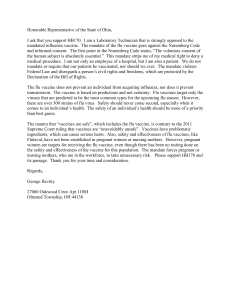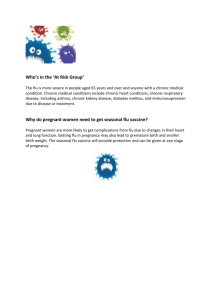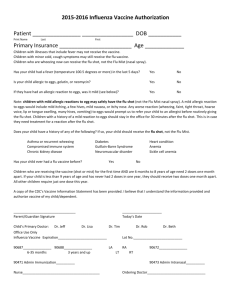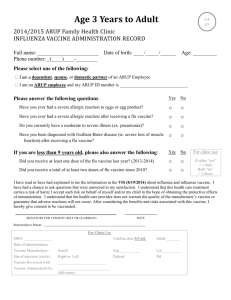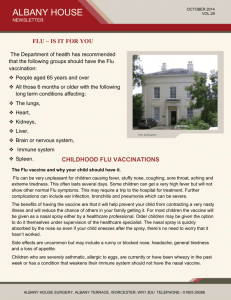FLU VACCINE - Piedmont Pediatrics
advertisement
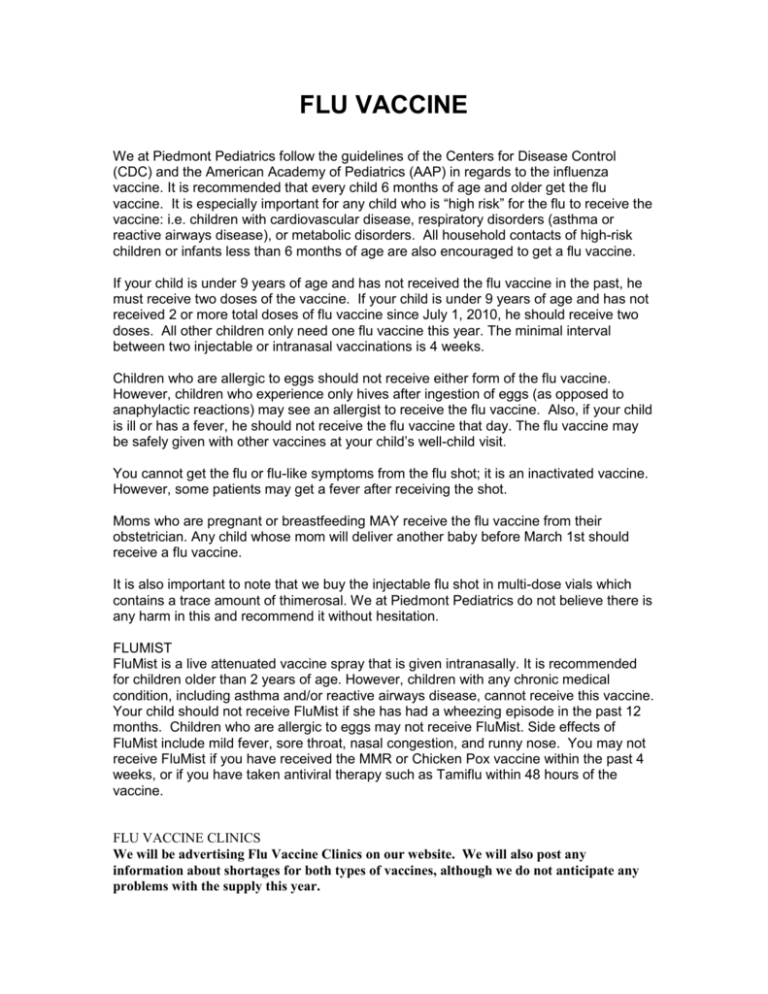
FLU VACCINE We at Piedmont Pediatrics follow the guidelines of the Centers for Disease Control (CDC) and the American Academy of Pediatrics (AAP) in regards to the influenza vaccine. It is recommended that every child 6 months of age and older get the flu vaccine. It is especially important for any child who is “high risk” for the flu to receive the vaccine: i.e. children with cardiovascular disease, respiratory disorders (asthma or reactive airways disease), or metabolic disorders. All household contacts of high-risk children or infants less than 6 months of age are also encouraged to get a flu vaccine. If your child is under 9 years of age and has not received the flu vaccine in the past, he must receive two doses of the vaccine. If your child is under 9 years of age and has not received 2 or more total doses of flu vaccine since July 1, 2010, he should receive two doses. All other children only need one flu vaccine this year. The minimal interval between two injectable or intranasal vaccinations is 4 weeks. Children who are allergic to eggs should not receive either form of the flu vaccine. However, children who experience only hives after ingestion of eggs (as opposed to anaphylactic reactions) may see an allergist to receive the flu vaccine. Also, if your child is ill or has a fever, he should not receive the flu vaccine that day. The flu vaccine may be safely given with other vaccines at your child’s well-child visit. You cannot get the flu or flu-like symptoms from the flu shot; it is an inactivated vaccine. However, some patients may get a fever after receiving the shot. Moms who are pregnant or breastfeeding MAY receive the flu vaccine from their obstetrician. Any child whose mom will deliver another baby before March 1st should receive a flu vaccine. It is also important to note that we buy the injectable flu shot in multi-dose vials which contains a trace amount of thimerosal. We at Piedmont Pediatrics do not believe there is any harm in this and recommend it without hesitation. FLUMIST FluMist is a live attenuated vaccine spray that is given intranasally. It is recommended for children older than 2 years of age. However, children with any chronic medical condition, including asthma and/or reactive airways disease, cannot receive this vaccine. Your child should not receive FluMist if she has had a wheezing episode in the past 12 months. Children who are allergic to eggs may not receive FluMist. Side effects of FluMist include mild fever, sore throat, nasal congestion, and runny nose. You may not receive FluMist if you have received the MMR or Chicken Pox vaccine within the past 4 weeks, or if you have taken antiviral therapy such as Tamiflu within 48 hours of the vaccine. FLU VACCINE CLINICS We will be advertising Flu Vaccine Clinics on our website. We will also post any information about shortages for both types of vaccines, although we do not anticipate any problems with the supply this year.
